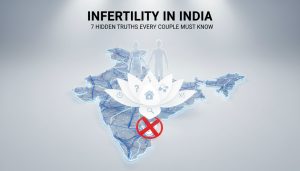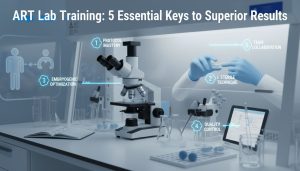What is PCOD and PCOS, why it matters?
Being a woman is already tough, I mean we have monthly cycles to remind us that we are different. Yes, we have a crown, we are privileged to give birth.
The person who coined that has never experienced the five days of flow.
Even if we do pain or gain analysis of our life, husbands would always be sitting on the fence telling us you could do better.
If we miss a cycle it’s a problem and if we have painful cycles the people around us bear the brunt. Our lives are haunted right from puberty till menopause and thereafter also there is no peace.
How we live today will decide the condition of our body ten years from now. However, our lifestyle has changed for the worse with PCOS and PCOD now commonplace.
Poly Cystic Ovarian Disease (PCOD) and Poly Cystic Ovarian Syndrome (PCOS), these are terms that doctors or gynecologists use to label our irregular cycles.
I was detected with PCOD in my teens and after marriage, to my shock, my gynecologist told me conceiving a baby would be a challenge. Today, I have three lovely kids that have proven her wrong.
Firstly, I am no expert and my experience with doctors and gynecologists has been mindboggling. Though they seem to be subject matter experts, most of them have made buckets in their head and if you have PCOD you have a problem.
A quick Google search (not recommended by doctors, but do it anyway, there is no harm in checking so that you can have valid questions for your doctor) would give you details about what PCOD is and how to detect it.
What is PCOD? Decoding it for regular humans.
From my Google interpretation and personal experience, it is to do with a hormonal imbalance.
As if we did not have enough imbalances in life, here are some more! Hormones are essentials for the release of the egg from the ovaries, they support the pregnancy and later the fetus through the pregnancy.
PCOD also has something to do with male hormones that are present in our bodies. How I wish men had some of our hormones to understand us better!
These male hormones cause hair growth and, in some cases, also cause acne. So is PCOD a serious issue or something that we can recover from in time? In order to understand this let’s decode PCOD.
The word disease in Poly Cystic Ovarian Disease does make it sound like we have contracted something.
However, the good part of PCOD is that your ovaries are releasing eggs, but the hormonal imbalances turn them into cysts.
So, what causes these eggs to become cysts and why do you experience irregular periods? Junk food, today’s fast food option is to be blamed for our excessive intake of carbohydrates, which results in weight gain.
This extra weight puts pressure on the body and disturbs the hormonal activity.
This also causes the ovaries to enlarge and later fertility-related problems.
So, what should a teenager do if she has irregular periods? Firstly, tracking cycles is tedious and having irregular cycles is a blessing in disguise.
It saves us a lot of hassles and unwanted anxiety during those three days, forgets the mood swings and snappy one-liners.
As a teenager, you should share your cycle details with your mom, she can understand your issues and help you deal with it.
My take, irregular cycles should not be ignored and you must see a doctor. The first thing the doctor is going to check is your weight.
The body mass index would give an insight into your dietary intake and whether you have been eating healthy.
PCOD may be a disease, but it can be managed with dietary changes and exercise.
But then the question remains as to why in your teenage years does PCOD matter?
The early detection of the condition based on irregular cycles, excessive hair growth or acne could help reduce the severity of the problem.
In most cases with weight loss and dietary restrictions along with increased fiber intake, cycles have become regular and fertility issues have been resolved without medical intervention.
So, cut down on junk food. I know it’s difficult to avoid but my suggestion is to reduce the frequency and give the body a break and exercise to burn the excess calories.
Avoid poultry products that have been induced with hormones or processed foods with excessively high levels of sodium. It is important to avoid these or regulate them for a better tomorrow.
Doctors will tell you there is no cure for PCOD and you have to live it with forever.
They are partly right and, in some cases, medications are prescribed based on the severity.
There are blood tests that can check the androgen levels in the body or pelvic exams and ultrasounds can be used for diagnosis.
PCOS and PCOD are used interchangeably to define irregular cycles.
But they are quite different, PCOD, as explained earlier, is a condition of hormonal imbalances and one can improve their condition with diet control and restrictions.
On the other had PCOS is a disorder and much more severe than PCOD.
In most cases of PCOS, the egg release stops due to follicular cysts.
Therefore, a scan is very important to determine the severity of the issue and understand what course of treatment should be followed.
PCOS is also an indication of other lifestyle diseases like diabetics, blood pressure, obesity, and in some cases endometrial cancer.
My suggestion would be if you notice changes in your routine metabolism, see a good gynecologist and do a thorough diagnosis.
Lastly, PCOD or PCOS both need diet control and physical activities, but you need to get it checked to be absolutely sure that you are healthy.





